| Explore What the DRC Has to Offer |
The Data Resource Center (DRC) website provides
point and click
interactive access
to your data findings from national and state MCH surveys. We offer a range of resources to help you put data into action at the national, state, and local levels!
Go to the
DRC website to quickly access data findings, learn about the data, get ideas for using data to engage partners, monitor needs, assess system performance, inform and drive innovations, or get technical assistance.
Fast-track to DRC resources:
*
Learn about the surveys
*View data by tailored, customizable profiles
|
| ACEs Data in Action |
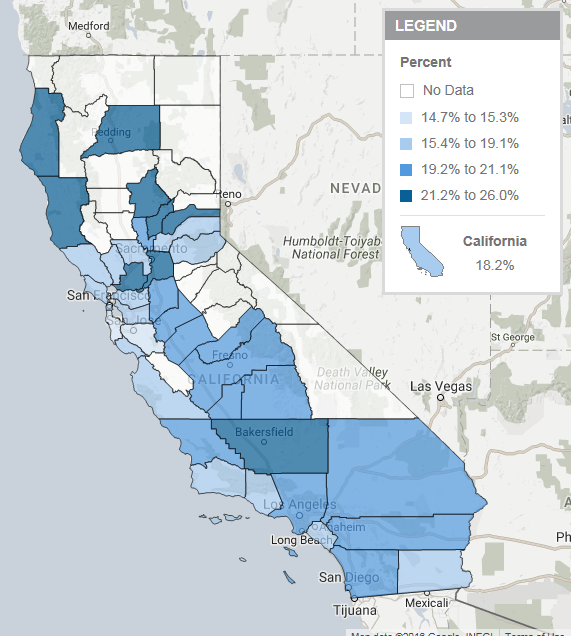
The Lucile Packard Foundation for Children's Health has recently added a new section to their Kidsdata.org site entitled "
Childhood Adversity and Resilience." This site highlights NSCH data on Adverse Childhood Experiences (ACEs) and resilience (defined as remaining calm and in control when faced with a challenge), including local area estimation data for California counties developed by the CAHMI. The site also provides information on the importance of the topic and policy implications of the data.
Also check out the website for the new Changing Minds campaign from Futures Without Violence. The campaign's goal is "
to raise awareness about the impact of childhood trauma and motivate adults who regularly interact with children to take meaningful action in helping them
."
|
| America's Health Rankings of Women and Children |
recently released its latest report,
The model shown here, where four categories of health determinants (behaviors, community & environment, policy, and clinical care) combine to influence health outcomes, reflects over 60 measures of health determinants selected by the steering committee. Included in this number are 15 DRC measures from the NSCH and NS-CSHCN, including Developmental Screening, Medical Home, and Protective Home Environment. This important report applies the
America's Health Rankings
model of health to the health of women of reproductive age, infants, and children, and shows notable differences in the health of women and children across states.
|
|
Position Available at the CAHMI!
|
|
We are looking for an experienced, passionate, and dedicated
Research Program Manager to join our team here in Baltimore at the Johns Hopkins School of Public Health.
The successful candidate will have demonstrated knowledge about MCH-related programs in the US, qualitative and quantitative research methods for assessing health, needs, and engaging the MCH population and workforce, and a successful track record in formulating and implementing project management plans within a team context.
As part of a collaborative team, the Research Program Manager will be a key partner in CAHMI efforts related to the National MCH Data Resource Center, the National MCH Measurement Research Network and related efforts to develop, test and advance family centered engagement tools for improving MCH outcomes in practice.
|
|
Get Technical Assistance and Share Your Ideas
or use our "Ask us a Question" feature:
|
|
|
|
| Come See Us at APHA! |
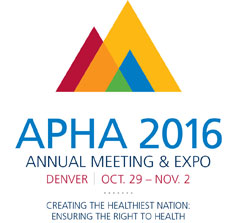
This year's
APHA Annual Meeting will take place in Denver from Oct. 29th-Nov. 2nd
!
We hope you'll stop by the CAHMI Data Resource Center booth (#717) in the Public Health Expo to learn about our data and data-in-action resources.
In addition, we invite you to three presentations our team will present at APHA:
- Equally Unequal: Adverse childhood experiences (ACEs) among children with special health care needs across the complexity and economic grid
- Sunday, Oct. 30th, 2:30-3:30
- Maternal and Child Health Measurement in the US: Findings from a strategic measurement gaps analysis to advance valid and actionable MCH outcomes and systems performance assessment
- Monday, Oct. 31st, 10:30-12
- Advancing Improvements in MCH Outcomes Using Local Area Estimates from the National Survey of Children's Health: An overview of methods and field applications
- Wednesday, Nov. 2nd, 12:30-2
|
| Maternal and Child Health Measurement Research Network & MCH Measurement Portal |
The CAHMI is pleased to launch our Maternal and Child Health (MCH) Measurement Portal, housed on the DRC website. In this portal, we share tools that were developed in part under the rubric of the Maternal and Child Health Measurement Research Network (MCH-MRN), an interdisciplinary, collaborative network of experts who represent the MCH lifespan and who are active in the measurement of health and well-being of MCH populations (see more below). Through the MCH Measurement Portal you can search the over 800 measures of maternal and child health represented across a range of existing MCH programs in the US. Explore these in the
interactive MCH Measures Compendium,
which will be updated over time. The compendium allows users to quickly sort through measures by measure set, data source, topic, key word, and more. Let us know what you think, and how we can make this compendium most useful for you, by e-mailing
[email protected]
!
Users can also find at-a-glance, summary
profiles
of the MCH program measure sets and initiatives included in the compendium, which include Title V, Medicaid/CHIP, Healthy People 2020, Child Welfare, the Pediatric Quality Measurement Program measures, and more. Of course, you can also browse the measures in these programs through our
interactive compendium.
The
 MCH Measurement Portal also shares information and resources from the MCH-MRN, a project coordinated by the CAHMI and funded by HRSA/MCHB.
The purpose of the MCH-MRN is to advance the availability and effective use of valid and actionable MCH measures to ensure data-driven innovation and shared accountability for improving
outcomes and systems performance on behalf of the nation's children, youth, and families.
Moving forward, the MCH-MRN will be launching several Technical Working Groups (TWGs) to address topical and methodological gaps to improve the state of MCH measurement in the US. If you are interested in being a part of a TWG, or just want to keep up to date on the MCH-MRN, please
sign up through the MCH Measurement Portal for more information!
|
Coming Soon: New Tailored, Customizable Profiles: Mapping NSCH Data to Child Health and Well-Being Frameworks
|
Coming soon on the Data Resource Center website, we will be expanding our
Data Snapshots section to include several
customizable profiles
tailored to national measurement and action frameworks
for child, adolescent, and family health and well-being. These profiles will allow users to view data from the National Survey of Children's Health through the lens of
a framework of interest and/or relevance to their work. Users will be able to create a customized multiple-indicator state data report, with indicators stratified by demographics and other characteristics, available in both table and chart formats.
For the first wave, you will be able to find profiles for NSCH measures relevant to 7 national measurement and action frameworks:
- Robert Wood Johnson Foundation's Culture of Health
- Office of Adolescent Health's Think, Act, Grow®
- Administration on Children, Youth, and Families' Well-being framework
- Healthy People 2020 Topics and Objectives
- Healthy People 2020 Social Determinants of Health
- Maternal and Child Health Bureau's Title V National Performance Measures & National Outcome Measures
- Center for the Study of Social Policy's Strengthening Families Protective Factors
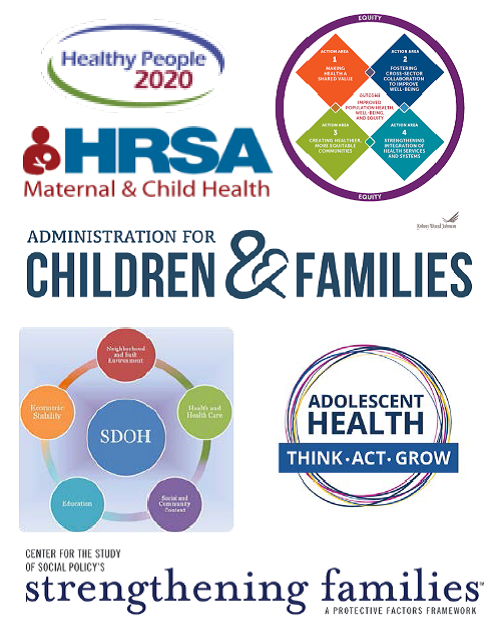
In the future, we plan on expanding thi
s feature to include even more frameworks, including Medicaid/CHIPRA and our own MCH Measurement Research Network framework. Additionally, we would love your input on what would be most useful to you! Please e-mail us at [email protected] to nominate frameworks for inclusion!
|
| Data in Action: Advancing Positive Health |
The CAHMI continues to be committed to addressing social determinants of health, particularly in the area of positive health. We are working to support the focus in the field on addressing social and emotional determinants of health and promoting positive health and healing in a variety of ways. As a part of this work, we hosted a summit on Hope and the New Science of Thriving this past March, with participants working in health systems, in research, as providers, at foundations, in policy, and more - all focused on promoting positive health for children, youth, and families. Learn more with this overview of the proceedings and by reading an article on this theme from the Spring 2016 issue of the Johns Hopkins Public Health Magazine.
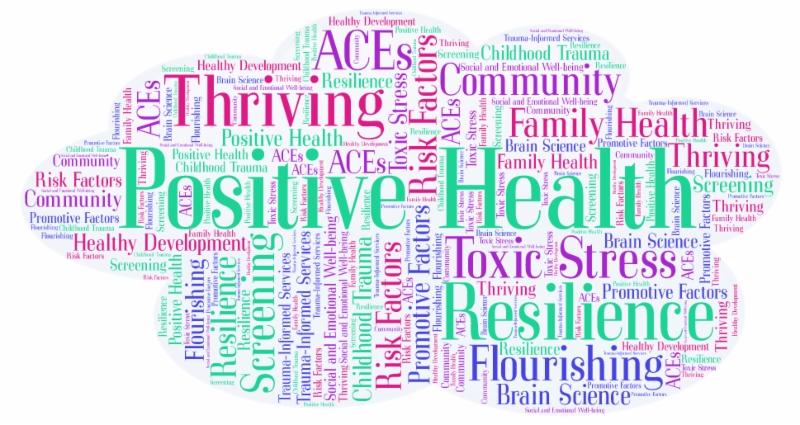
Also relevant to our work in this area are educational presentations featuring the NSCH data. Click here to view a talk given by CAHMI's Christina Bethell at Stanford's April 2016
ChildX Symposium
: Designing Solutions for Maternal and Child Health. This talk -"
Thriving in a Changing Environment
" - is accompanied by a
follow-up conversation
,
which focuses on further exploring the importance of positive health development and engaging children, youth, families and communities. See also Dr. Michael Lu's talk and interview at this symposium.
Finally, the CAHMI's Well Visit Planner (WVP) tool is designed to assist parents in navigating and getting more out of well-child check-ups during their child's first 6 years of life, including promoting positive health and socio-emotional development. You can find out more about the WVP on the CAHMI website, including resources for providers and Head Start organizations.
CAHMI also partnered with
Family Voices
to create a series of family-friendly tools to support families and family advocates in their use of the WVP. These tools were bundled into a WVP
media toolkit
, available in both English and Spanish, aimed at family advocates, which will enable them to disseminate information about the WVP to the families they serve.
In the near future, we will also be sharing an ACEs toolkit with resources for families, researchers, policymakers, health care providers, and more!
There will also be a focus on positive health in the MCH-MRN project (see above). Please e-mail us at [email protected] to share interest, for more information, or to get involved!
|
| Get Ready to Be Our Voice! |
 We need your help to get the word out! We need your help to get the word out!
The Data Resource Center has a wealth of data and resources that can help MCH professionals engaged in research, policy, programmatic work, and advocacy, and we're always adding new content! Additionally, the new NSCH (including combined NSCH and NS-CSHCN content) is currently being fielded and will be available on the DRC next year.
But we need your help to make sure that everyone knows about and can use the data and resources! If you're willing to be our voice, please e-mail Kate Powers at [email protected], and we can provide you with all the necessary tools -- slides to add to your presentations and trainings, widgets and links to add to websites, copy for newsletters, language for social media, and more! We can also provide customized resources for your particular needs. Help us share resources to promote child, youth, and family health in the US!
|
|
About Us
|
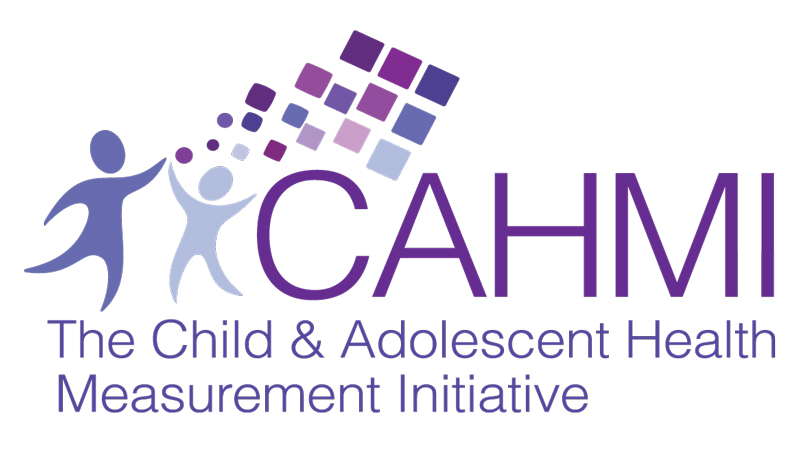 |
Th
e DRC is a project of the CAHMI and is made possible by the
|
|
| |
|